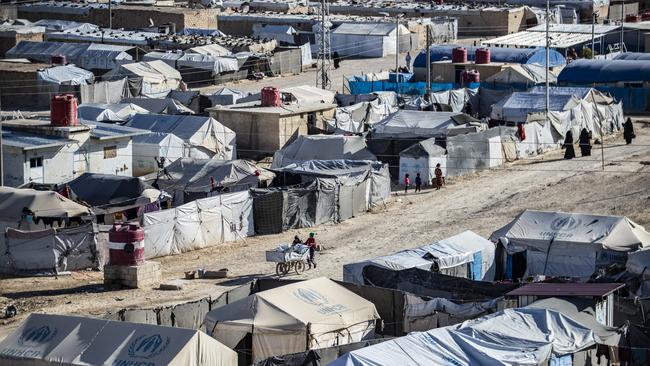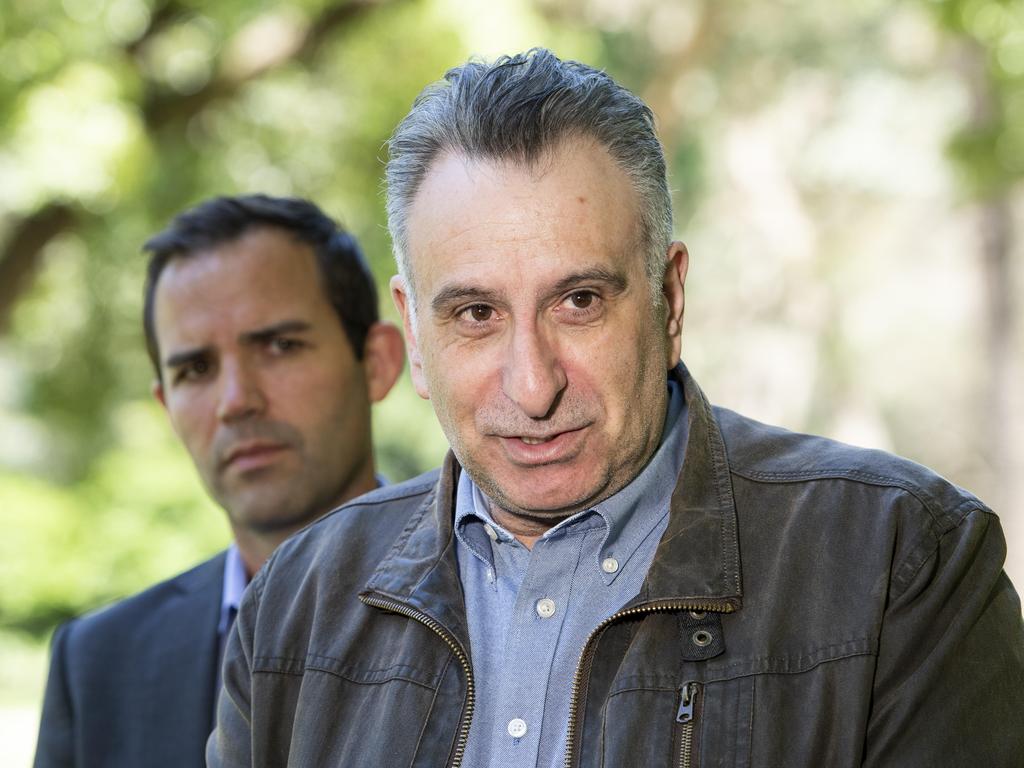Leaving IS brides in camps ‘never on’
Leaving Australian women and their children in the camps for Islamic State families in Syria ‘forever’ was never a sustainable option, a counter-terrorism expert has said.

Leaving Australian women and their children in the camps for Islamic State families in Syria “forever’’ was never a sustainable option, a counter-terrorism expert says.
Debate continues over the decision by Labor to repatriate four women and their 13 children from the al-Roj camp in Syria in late October and resettle them in Australia.
Home Affairs Minister Clare O’Neil said the decision was made because it was deemed safer for the children to be raised in Australia than in the camps, where they would come under further influence from Islamic State.
Peter Dutton, who repatriated a group of mainly orphans in mid-2019 but refused to bring back others, maintained the risk to Australia was too great.
While not commenting on the politics of the debate, Katja Theodorakis, head of the counter-terrorism program at think tank ASPI, said it was never an option to leave the families in the camps indefinitely.
Countries including The Netherlands, France, Canada, Denmark, France and Germany have been repatriating citizens, while the US has taken back all of its men, women and children, and prosecuted several adults.
The four Australian women, who are not accused of any crime, are now living in the community, monitored by police.
“Repatriating the women should not be seen as amounting to impunity, or absolving them from the consequences of their decision - as some have suggested,’’ Ms Theodorakis said. “Indefinite detention would be irresponsible - it’s just not a sustainable security solution and neglects international obligations.
“Continuing to adhere to this idea would be an illusion; persistent inaction could very well lead to a government being forced to pick up the broken pieces of a failed policy response later on.”
While the four women have been deemed low-risk in an ASIO threat assessment, it’s thought some sort of legal action is being planned behind the scenes by authorities, possibly a supervision order, through the Supreme Court of NSW.
The four women, and the 12 others still in the camp in Syria, volunteered years ago to submit to a terrorism control order upon their return, although such a move seems unlikely.
Legal experts say a terrorism control order can be applied to a person who has not been charged with a terrorism offence but that the laws were designed mainly for high-risk terrorism offenders post-jail sentence.
Ben Saul, the Challis Chair of International Law at the University of Sydney, said grounds existed within the Criminal Code for a terrorism control order to be applied for, even if a person had not been charged. Those grounds included if an order would substantially assisting in preventing a terrorist attack, or support for, or facilitation of, a terrorist attack.
They could also apply if a person facilitated or supported hostile activity overseas, or provided, received, or participated in training (of any kind) with a listed terrorist organisation.
“Each particular obligation/prohibition/restriction imposed on the person must also be reasonably necessary to protect the public from a terrorist act, or to prevent support/facilitation of a terrorist act or hostile activity overseas,’’ Professor Saul said.
Such an order would be sought by the Australian Federal Police in a Federal Court, or the Family Court of Australia, and the benchmark to be reached was the civil standard – on the balance of probabilities.
Professor Saul said consent alone was not a valid basis for imposing an order. “The AFP must still satisfy the court, on the balance of probabilities, that one of the legislative grounds for issuing an order is met,’’ he said.
“A person’s mere presence in Syria, or family or civilian association with ISIS, or simply holding extreme ideas, may not be sufficient. The grounds for issuing orders could be interpreted widely … depending on the scope of past ‘support’ for or ‘facilitation’ of hostile activities by ISIS, or if a person received any kind of ‘training’ (even non-military).
“Where possible, it would be preferable to prosecute a person where there is sufficient evidence of past crimes.’’








To join the conversation, please log in. Don't have an account? Register
Join the conversation, you are commenting as Logout